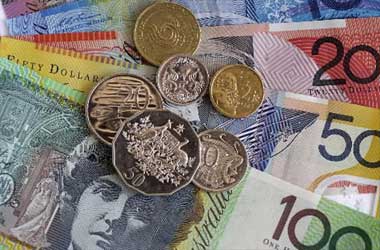 The Aussie’s valuation saw another round of upward revision from analysts following the report of historically high trade surplus data last week, but lackluster global equity markets seem to be limiting further short-term uptrend in the currency.
The Aussie’s valuation saw another round of upward revision from analysts following the report of historically high trade surplus data last week, but lackluster global equity markets seem to be limiting further short-term uptrend in the currency.
Financial markets remains sluggish as bond yields across the world continue to increase, with the US 10-year treasuries taking the lead.
The increase in yield has caused concerns among investor community as it indicates the likelihood of high inflation in the future. The timing of next interest rate hike is based on inflation rate.
The sharp increase in yields propels the financing costs in global economies and slows down the economic recovery. That is reflecting in the equity markets. As the Aussie has correlation with risk sentiment, it is unable to build adequate momentum to rally against its peers.
Nevertheless, the strong economic data from Australia indicates that the Aussie will strengthen soon after the global market consolidates and moves forward. Last Tuesday, the Reserve Bank of Australia published its monthly price index for commodity exports which has not reached the highest level in eight years, an event that could likely spark further rally of the Aussie.
Increasing export receipts create a demand for the Australian dollar, which is now cementing its position against its peers. The currency of a country with robust export base cannot be easily shaken up by short-term changes in global capital flows. That is also a factor keeping the Aussie strong.
The GBP/AUD pair closed at 1.8018 last week after hitting a high of 1.8080. Likewise, the AUD/USD pair ended the week at 0.7670 after hitting a high of 0.7830.
In a note to clients, Stephen Gallo, European Head of FX Strategy at BMO Capital, has stated that the Aussie is lagging in the rally, in comparison to the commodity export index, indicating further upside in the days ahead.
Back in 2013, when the commodity export index recorded such levels, the AUD/USD posted a high of 1.058 and the GBP/AUD hit a record low of 1.4382.
Gallo pointed out that in the 48-year year history of floating currency exchange rates, the Australian dollar has never been supported by a current account surplus of this size. He also opined that the retracement last week should be used as an opportunity to establish fresh long positions in the Australian dollar.
BMO Capital anticipates AUD/USD to ultimately breach 0.80 in the weeks ahead.
As per data published by the ABS (Australian Bureau of Statistics), the country posted current account surplus of A$14.5BN (3.0% of GDP) for fourth-quarter, pushing last year’s surplus to A$49.1BN (2.6% of GDP).
The major factor that is now restricting another round of uptrend in the Australian dollar is the rising bond yield. To main the cost of lending steady, the RBA, in its recent monetary policy meeting, stated that they had employed forward bond buying to aid the smooth functioning of the market. During the March policy meeting, the RBA also left the interest rates unaltered at 0.10%.
So far, the RBA has purchased A$74 billion worth government bonds under the earlier A$100 billion program. Following the completion of this program, the RBA intends to purchase another A$100 billion worth government bonds. The central bank has also stated that it stands ready to modify its purchases as a response to market situations.
The unabated rally in the price of iron ore and copper has enabled the country to record an increase of 6.2% increase in export earnings. Imports, however, declined by 2.3%. Specifically, the amount generated from the exports of commodities posted a growth of 7.6% in US dollar terms. In 2020, the country’s exports grew 7.3%.




